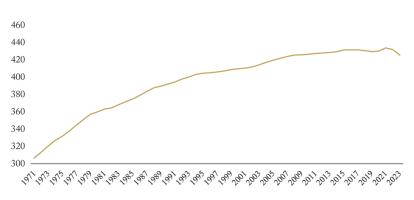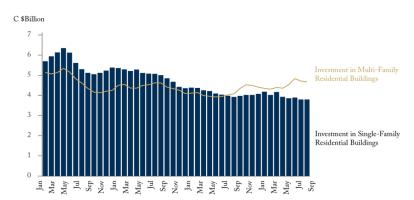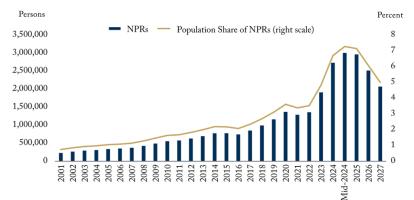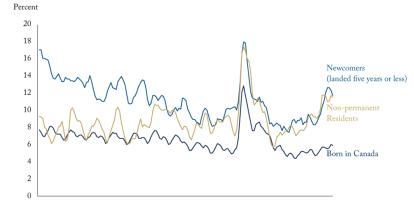The performance of band-operated, on-reserve schools, while much better than the residential schools they replaced, remains very weak in comparison with provincial schools. In this edition of Graphic Intelligence we illustrate how, based on 2011 National Household Survey data, high-school completion varies by both identity group and age among all populations.
Oops! If you can see this message, it may be because the chart is not displaying correctly. Try upgrading your browser or enabling Javascript.
C.D. Howe Institute | Source: Anderson and Richards (2016)
The educational challenges facing young Aboriginal students are significant. Among young adults aged 20-24, nine of 10 non-Aboriginals have at least a high-school diploma, as do eight of 10 Métis and seven of 10 First Nation living off-reserve. In stark contrast, only four in 10 First Nation young adults living on-reserve have graduated from high school.
First Nation children with low levels of education face a future plagued by unemployment, poverty, limited social and economic opportunities, crime, health problems and an ongoing reliance on federal and provincial government support for housing. This bleak prospect should make improving education results for on-reserve students imperative for bands, the Assembly of First Nations, and the federal government. High-school completion is a low but crucial rung on the ladder to regular employment. Even though passing final high-school exams is an imperfect symbol of students’ knowledge, the certificate itself has become a widely used screen by employers and those responsible for access to further education. It is hard to exaggerate the role of high-school completion in predicting whether a teenager avoids poverty over his or her lifetime. Whether students are First Nation, Métis or non-Aboriginal, high-school completion increases the probability of being employed by at least 25 percentage points.
To read more on where the education gaps exist, and what can be done about it, read "Students in Jeopardy: An Agenda for Improving Results in Band-Operated Schools" by Barry Anderson and John Richards.




